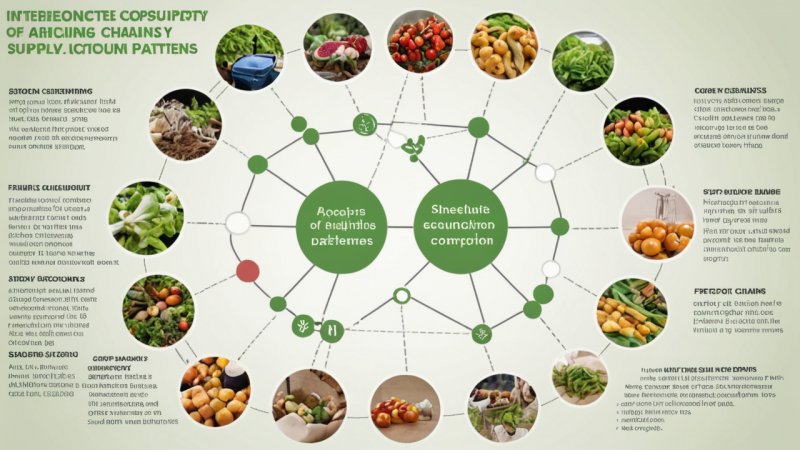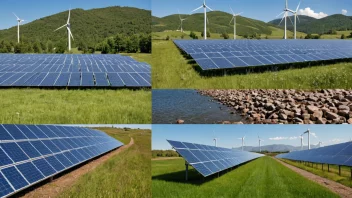The economics of food systems is a multifaceted field that examines how food is produced, distributed, and consumed, and the impacts these processes have on society and the environment. In a world increasingly concerned with sustainability, health, and equity, understanding the economic principles that govern food systems is more crucial than ever. This article delves into the various components of food systems, including agricultural production, supply chains, consumption patterns, and the socio-economic factors that influence them. By exploring these elements, we can better appreciate the complexities of food economics and the critical role they play in shaping our world.
Agricultural Production: The Backbone of Food Systems
Agricultural production serves as the foundation of food systems, encompassing everything from crop cultivation to livestock rearing. The economic principles that govern agricultural production include supply and demand, market structures, and pricing mechanisms. Farmers make decisions based on various factors such as land availability, labor costs, and input prices. Additionally, advancements in technology and engineering have significantly impacted agricultural productivity. Innovations such as precision farming, genetically modified organisms (GMOs), and sustainable farming practices have transformed the way food is produced, leading to increased yields and reduced environmental impacts.
Supply Chains: Connecting Producers to Consumers
The food supply chain is a complex network that connects agricultural producers with consumers. It involves multiple stages, including processing, distribution, and retail. Understanding the economics of food supply chains is essential for identifying inefficiencies and opportunities for improvement. For instance, food waste is a significant issue within the supply chain, with estimates suggesting that approximately one-third of all food produced is wasted. Addressing this problem requires a comprehensive understanding of the economic factors that contribute to waste, such as overproduction, lack of infrastructure, and consumer behavior.
Consumption Patterns: Influencing Food Choices
Consumer behavior plays a critical role in shaping food systems. Economic factors such as income levels, prices, and cultural preferences influence what people eat and how much they are willing to pay for food. Additionally, trends in health and wellness, sustainability, and ethical consumption are increasingly affecting consumer choices. For example, the rise of plant-based diets and organic foods reflects a growing awareness of health and environmental issues. Understanding these consumption patterns is essential for policymakers and businesses aiming to create sustainable food systems that meet the needs of diverse populations.
Socio-Economic Factors: The Role of Policy and Regulation
Socio-economic factors, including government policies and regulations, play a significant role in shaping food systems. Agricultural subsidies, trade policies, and food safety regulations can all impact food production, distribution, and consumption. For instance, subsidies for certain crops can distort market prices and influence farmers' decisions on what to grow. Furthermore, social equity issues, such as food insecurity and access to healthy foods, highlight the importance of considering economic disparities in food systems. Policymakers must navigate these complex dynamics to create equitable and sustainable food systems that benefit all members of society.
Environmental Sustainability: Balancing Economic and Ecological Goals
The economics of food systems is intrinsically linked to environmental sustainability. As the global population continues to grow, the demand for food increases, placing pressure on natural resources. Sustainable agricultural practices, such as agroecology and regenerative farming, aim to balance economic goals with ecological health. Understanding the economic implications of these practices is vital for promoting long-term sustainability in food systems. Additionally, the concept of the circular economy offers innovative solutions for reducing waste and maximizing resource efficiency within food systems.
The Future of Food Systems: Challenges and Opportunities
The future of food systems presents both challenges and opportunities. Climate change, population growth, and shifting consumer preferences are just a few of the factors that will shape the economics of food systems in the coming years. Embracing technology and innovation, such as vertical farming and lab-grown meat, can help address some of these challenges. Furthermore, fostering collaboration among stakeholders, including farmers, businesses, and policymakers, is essential for creating resilient and sustainable food systems.
In conclusion, understanding the economics of food systems is crucial for addressing the complex challenges facing our global food supply. By examining agricultural production, supply chains, consumption patterns, socio-economic factors, and environmental sustainability, we can gain valuable insights into how to create more equitable and sustainable food systems. As we move forward, it is essential to continue exploring innovative solutions and fostering collaboration among all stakeholders to ensure a healthy and sustainable future for our food systems.






